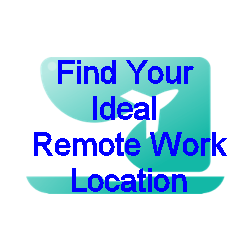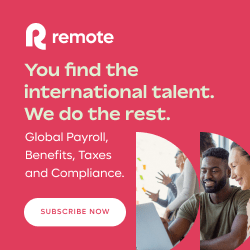Flexibility wins almost every time. I think I need to thank Hanna Larsson for that opening line, but it’s sort of a universal truth. One of the things that we’ve learned from the pandemic and remote work is that people want flexibility. And companies that want flexibility, want people that want flexibility. Say that 10 times fast! For the employees flexibility is obvious. There is the flexibility to adjust time responsibilities. This includes how they respond to things and when they respond to things.
Flexibility improves the work experience, but it traditionally hasn’t been part of the work offering. We’ve grown up with 9-5 cubicle farms as the norm. Remote work was often viewed as an accommodation that required multiple levels of approval. It was also often viewed with suspicion and extra scrutiny. In truth, companies need it as much as employees do.
Companies Actually Need Flexibility
For companies, the flexibility is different. It’s the flexibility to hire people on a global basis as opposed to those who can make the drive to your location. It’s the flexibility to accommodate people who may have different skill sets, different time availability, or physical or scheduling limitations. Flexibility means being able to leverage seniors who may only want to work 20 hours a week. They can also accommodate someone with a physical handicap that even with ADA accommodations, they are best suited to work in an office where they control their environment.
Flexibility also means sustainability. If you’re flexible, you can adapt to changes in your environment faster than someone who’s not flexible. This doesn’t always mean market changes, it may be weather or even the occasional pandemic. If you are worried about your carbon footprint, flexibility also means making Mother Nature happy.
Companies Built on Flexibility
For some companies, flexibility isn’t just about how they operate, but also what they offer to their customers. Here are a few companies you may have heard of that built their offering around flexibility that others didn’t offer;
Netflix revolutionized the home entertainment industry by initially offering DVD rentals by mail and later transitioning to streaming services. Their flexibility to adapt to changing consumer preferences and technology allowed them to outmaneuver traditional video rental companies like Blockbuster, which failed to embrace the digital streaming trend.
Amazon started as an online bookstore but quickly diversified its offerings to include a wide range of products. Its flexibility in expanding its product categories, implementing efficient logistics and delivery systems, and leveraging technology has helped Amazon dominate the e-commerce market, surpassing many traditional brick-and-mortar retailers.
Tesla disrupted the automotive industry by focusing on electric vehicles (EVs) when major automakers were skeptical about their potential. By being flexible and innovative in its approach to EV design, battery technology, and creating a luxury brand, Tesla gained a significant advantage over its competition, establishing itself as a leader in the electric vehicle market.
Airbnb introduced a flexible and decentralized approach to lodging by allowing individuals to rent out their spare rooms or properties to travelers. This disrupted the traditional hotel industry, providing unique accommodations at competitive prices. Airbnb’s platform flexibility, combined with a strong focus on user experience, enabled it to surpass established hotel chains in terms of market share and valuation.
Spotify revolutionized the music industry by offering a flexible streaming platform that allowed users to access a vast catalog of songs on demand. Their adaptive approach to licensing deals, personalized recommendations, and continuous improvement of the user interface positioned them as a leading music streaming service, outperforming traditional record labels and other streaming competitors.
What’s Next?
All systems are self-organizing so we need to be flexible if we want to survive. What that exactly means is hard to say, but there are some emerging themes;
We are finding our tribes more easily. They may not be geographically based, but we are making connections with people we are aligned with. And it’s happening on a global scale if you embrace the idea. Connections to our local communities are also growing and there is sort of a connection between the local and the global.
We are adapting better to the environment, rather than forcing it to adapt to us. The latter is still happening, but we are getting better at being stewards rather than owners. Renewable energy is becoming the norm, and flexible vehicles will most likely have 2 power sources in the future. Internal combustion isn’t likely to go away, but fossil fuels will be replaced by hydrogen or ammonia.
Careers will no longer be viewed as linear. We will have a new generation of Renaissance men and women who engage in multiple disciplines over their lifetime.
We just need to embrace flexibility and welcome the changes ahead.



